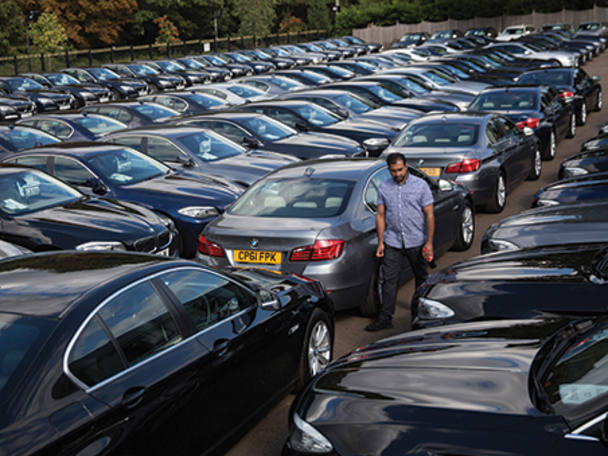Plenty of sectors have been placed under the microscope since the United Kingdom voted to leave the European Union, but one that hasn't played out in the broadsheet press - at least not to the extent that we're all bored of talking about it - is motor retail.
In fairness, growth across motor retail as a whole had already started to slow before the referendum, as it had with many other retail sub-sectors. This was largely down to the perceived slowdown in Asian markets, together with speculation over the trajectory of interest rates and general uncertainty about consumer spending. Post referendum, the dust is starting to settle. Although many motor retail groups found their share prices tanking in the immediate aftermath of the vote, that applied to any number of listed entities - at least initially. Valuations have retraced to an extent, but the search for bargains across the sector could still prove a profitable option for investors, as long as two important themes are understood.
The first is that the motor retail sector has traditionally been seen as highly cyclical. That's probably not news to experienced retail or consumer investors, but it's crucial to bear in mind ahead of a potential downturn. It's crucial because there isn't just one cycle that affects the industry. For many motor retailers, they have several profit streams, most of which are found through three key divisions: new cars, used cars and aftersales. The last of which is, by nature, far more defensive and is really only linked to what's known as the 'car parc' - simply put, the number of cars and other vehicles in a region or market.
For many of the larger retailers, the aftersales division can account for anything from a third up to one-half of gross profit. Revenues from this end of the motor trade are generally more predictable, which is doubtless reassuring for any investors entertaining the possibility of another downturn - especially as car parcs continue to expand. The reality is that service plans are not solely tied to the original sale of a given vehicle, so customers can be wooed by an aftersales division at any point of the value chain. And these sorts of services also bring in far more free cash flow than the original vehicles. Liquidity and relative predictability are highly desirable attributes in times of market uncertainty.
By contrast, the new car retail market is much more cyclical, but it typically accounts for a smaller proportion of total gross profit. The development of personal finance plans has also helped to reduce the sensitivity of this end of the business to market cycles, as it minimises the upfront costs for punters. Those plans are, however, influenced by the existing interest rate environment although there's little chance of that low-rate environment in the UK changing in the foreseeable future. The consumer trend towards flexible contractual or leasing arrangements is stoking the volumes of used cars, too, although the variance in used car volumes between 'peak and trough' times in the cycle has never been as dramatic as the new market.
The second theme relates to a matter of scale. Consolidation is far from complete in this sector. Analysts at N+1 Singer reckon the top 100 operators account for only 55 per cent of retail outlets and the third largest business by sales - Lookers (LOOK) - has only a 5 per cent share of the market. There are other means by which motor retailers could grow - better online competencies, better relationships with manufacturers - but analysts believe the trend for bigger, better, but ultimately fewer forecourts favours consolidation.
It's therefore worth bearing these factors in mind when considering what might happen to the sector in a post-Brexit economy, whatever form that might take. It may just be that commercial expediency will eventually trump EU political pressure. A recent conference on the sector highlighted the claim that that German manufacturers had been quick to put pressure on Berlin to ensure future free trade agreements with the UK, particularly as the scope for non-EU manufactured vehicles has suddenly been blown wide open. Much will depend on the eventual form of the negotiated trade settlement, but analysts and chief executives alike have said they might expect the supply push of new cars into the UK to reduce, which would only help to improve margins for dealers. Ultimately, however, it's thought the exchange rate could be one of the biggest influencers on new car sales and margins, although in the medium term that would largely depend on how the eurozone economies fare under the terms of any new settlement with the UK. After all, the UK runs hefty trade deficits with the big eurozone economies.
Another important reason to remain bullish at this stage is that the sector isn't in the same shape as it was at the time of the post-Lehmans financial downturn. The advance of the internet as a shop window has provided dealers with a far greater ability to keep growing market share. Sensitivity to market cycles has been reduced thanks to the increased preponderance of finance plans. And dealership numbers are falling, giving rise to better sales and profits per outlet. Some might like to point to the fact that when interest rates fell from 5.5 per cent to 2 per cent between 2007-08, so did new car registrations. You might think that effectively blows the theory that low interest rates automatically translate into higher car sales. But we were then in the midst of a severe credit crunch. This time aroumd we're unlikely to witness any prohibitions on lending. As far as customers are concerned, they also want to borrow at the lowest rate possible. While rates have stayed pretty flat since 2009, new car registrations have grown from around 2m per year to more than 2.5m last year.
New car sales versus UK interest rates
In the end, the companies seem focused on the same strategy: business conversion. This means trying to maximise on every business opportunity coming their way and converting as many customer enquiries into eventual - high ticket or high margin - sales. Franchise dealers are also still dependent on manufacturers, so the portfolio of brands for larger groups still remains important. That said, it's not as simple as premium manufacturers equalling resilient sales. Vertu Motors (VTU) chief executive Robert Forrester says premium brands do tend to be more financially resilient, but they bring with them a higher cost base, as the estates require more investment in terms of presentation and upkeep.
IC VIEW
In 2016, post referendum or not, what is emerging is that certain revenue drivers are more cyclical than others, but overall the development of low-interest Personal Contract Plans (PCPs) has made the sector less prone to cyclicality. And it's unfair to compare the events in the wake of the global financial crisis with the aftermath of the Brexit vote. Credits markets differ substantially, the role of the manufacturer is evolving and the internet has increasingly become a tool for growth. Not only that, but industry consolidation remains highly likely, thereby underpinning investment opportunities.
Favourites
We can't shy away from the fact that we've turned cautious on a few motor retailers we've hitherto held bullish views on. But that has little to do with the Brexit vote or worries about a recession. The market had already started to slow at the beginning of the year, regardless. We still favour smaller players Marshall Motor (MMH) and Cambria Automobiles (CAMB), and out of the bigger players we'd say Lookers is still pick of the crop. However, we remain in the middle of a reporting cycle, and urge readers to keep an eye out for the latest coverage.
Outsiders
Those we've turned a little cooler on in recent months include Vertu and Pendragon (PEN). The latter's shares trade on just eight times forward earnings, reflecting trading concerns, flat margins and the fact that underlying profit isn't growing as quickly as it has in the past. Vertu has lost momentum since the start of the year and, although that leaves the shares trading on a similarly cheap multiple, that could reflect uncertainty over possible future fundraisings, integration risk or a correction in the car market. The shares may still be worth holding onto, but we encourage readers not to be lured into a value trap.










